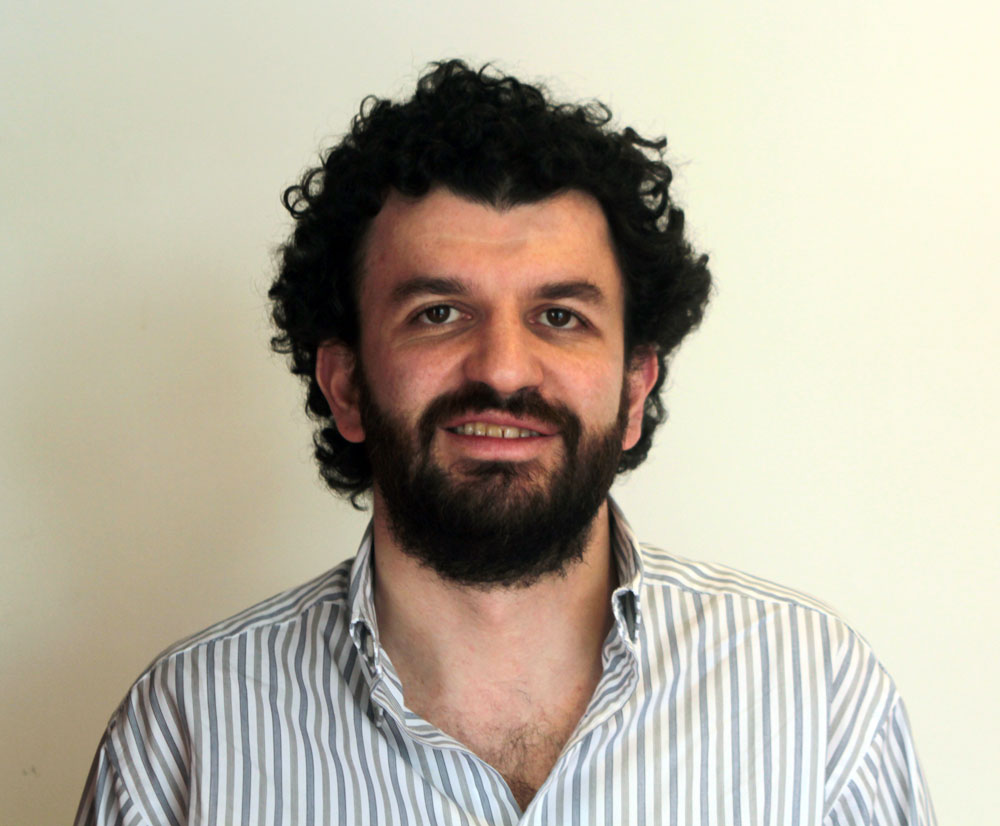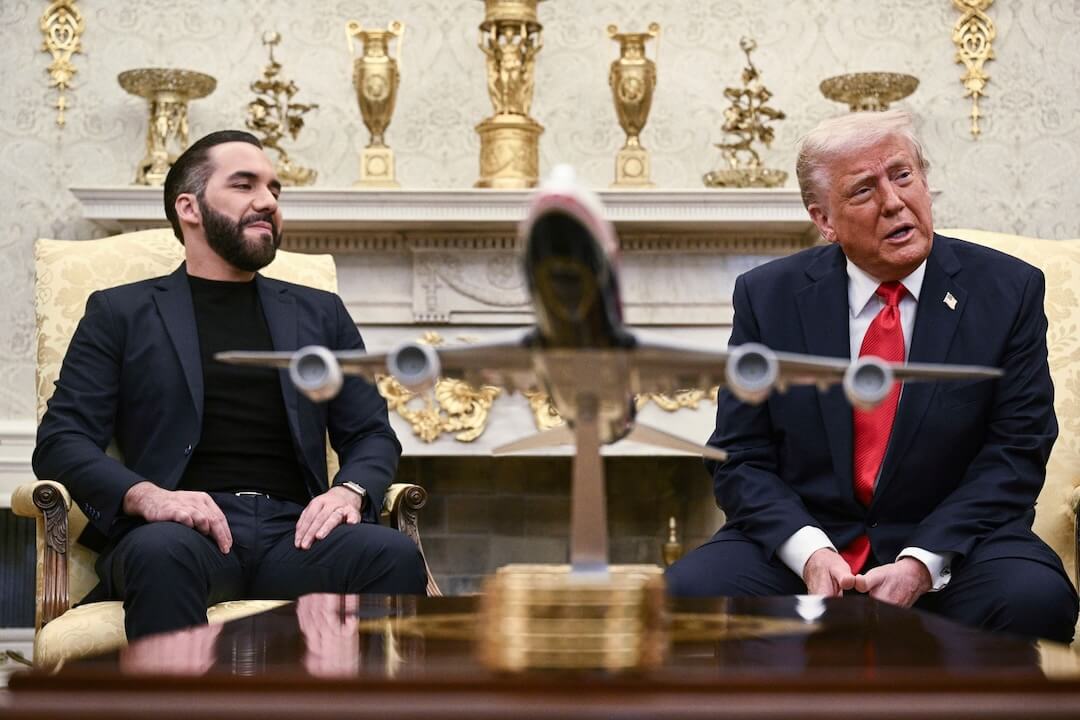At the International Fact-Checking Network, we’ve been covering news and trends in the fact-checking beat for over two years. As we surface best practices and provocative approaches to combat hoaxes, rumors, falsities and outright lies around the world, we compiled an inaugural list of the 10 most interesting people and work in 2017.
From surfacing viral hoaxes on WhatsApp to debating the use of the term “fake news,” strategies to counter online misinformation have blossomed over the past year. The number of fact-checking projects grew globally, from 114 at the start of the year to 137 as of publication.
Executive of the year: Peter Cunliffe-Jones at Africa Check
It’s been a big year for Africa Check. This month, the fact-checking outlet’s staff hit 22 (five of which are part-time) with new additions in Nigeria and Kenya — only weeks after it hosted its first meeting of regional fact-checkers in Johannesburg. It’s become a powerhouse for fact-checking on the African continent, amassing about 140,000 monthly unique visitors and a $1.3 million operating budget, which will grow over the next two years. And Peter Cunliffe-Jones, executive director of Africa Check, has been at the helm since its creation five years ago (Cunliffe-Jones is the Chair of the IFCN Advisory Board).
“Peter is undoubtedly one of the most important leaders at the fact-checking movement,” said Laura Zommer, executive director of Chequeado, in an email. “He is responsible for having successfully led an organization in order to be not only excellent in the journalistic sense, but especially strong and stabilized at the institutional level. Furthermore, Africa Check works and excels in a context of particular complexity, due to the differences in languages and data access across the continent.”
Honorable mention: Grégoire Lemarchand, head of the social media unit of the Agence France-Presse, for helping set aside rivalries between newsrooms to set up the CrossCheck project during the French election.

Story of the year: Facebook partners with fact-checkers
It’s been a little more than a year since Facebook announced it was working with fact-checking organizations to try and address its fake news problem. While fact-checkers’ opinions about the project are mixed, it certainly hasn’t been for a lack of news coverage. The initiative has been the center of many a story about fact-checking over the past year, from doomsday stories in The Atlantic to appeals for Facebook to do more in The New York Times. It’s still relatively unclear whether the social media company’s efforts have affected the spread of misinformation on the platform (a report from BuzzFeed this week isn't promising), but it has undoubtedly changed the rules of engagement this year.
“Facebook has spent hundreds of thousands of dollars (if not even a couple of million) on its fake news flagging project. Its fact-checking partners have spent hundreds of hours on the same,” said Alexios Mantzarlis, director of the IFCN. “This is likely the biggest experiment in combating online misinformation in real life ever. Love it or hate it, it’s a BFD.”
Honorable mention: Google highlighting fact checks in search through the Schema.org ClaimReview markup, a development made possible by the Duke Reporters’ Lab Share the Facts widget.

Thought leader of the year: Claire Wardle at First Draft
If you’ve read something about online misinformation in the past year, you’ve probably run across Claire Wardle’s work and commentary. As executive director of the now Harvard-based First Draft, she’s been at the forefront of the global discussion over misinformation, analyzing its causes and different forms. Her recent report on what she calls “information disorder” was cited by several fact-checkers as one of the best reads of the year.
"(Claire is) miles ahead in her thinking on misinformation than anyone else,” said Phoebe Arnold, head of communications and impact at Full Fact, in an email. “It was fascinating and a pleasure to work with her on Full Fact and First Draft's U.K. snap election monitoring project, where we brought fact-checking and verification together for the first time.”
“Claire is unstoppable — with four election projects, a growing organization and a milestone report under her belt in the past 12 months, I am excited to see what the next year holds.”
Honorable mention: Aaron Sharockman, executive director of PolitiFact (a project of the Poynter-owned Tampa Bay Times) for pitching and executing a multi-stop tour of rural America to reach out to conservative voters.

Innovator of the year: Juan Esteban Lewin at La Silla Vacía
Inspiring a distribution strategy that stretched across the globe, Juan Esteban Lewin, managing editor at La Silla Vacía in Colombia, started surfacing viral hoaxes on WhatsApp in January. Addressing misinformation on the messaging app presents a number of challenges: Its groups are private, it’s encrypted end-to-end and it’s impossible for users to fact-check information within the app. But Lewin forged ahead, developing a strategy for uncovering and debunking fake news on WhatsApp that relies on users— an imperfect solution, but one that has proved useful for other organizations as well.
“La Silla Vacía is great — (it’s) one of the more innovative media outlets in the region,” said Pablo Martín Fernández, editorial innovation director at Chequeado, in an email. “Their WhatsApp strategy, a key platform in Latin America, was an inspiration for making ours.”
Honorable mention: Mevan Babakar, digital product manager at Full Fact, for leading the British fact-checkers’ automated fact-checking work.

Researchers of the year: Gordon Pennycook and David G. Rand
The most important question on the online misinformation beat this year is whether Facebook’s fake news flagging mechanism is actually working (see story of the year). David Rand, an associate professor of psychology at Yale University, and Gordon Pennycook, a postdoctoral fellow at Yale, have tried harder than most researchers to get an answer. In a September study, they found that tagging fake news stories on the social media platform helps decrease the likelihood that they’re believed, though the credibility of untagged stories may increase as a result. That study built on another from April in which they found that labeling isn’t very effective at limiting the belief in misinformation that people have seen before. Their work resulted in articles doubting Facebook’s partnership with fact-checkers, and while some of that may have been misplaced, their research stands out for its direct assessment of one of the year’s biggest fact-checking developments.
"David and Gordon are doing important work,” said Kelly Greenhill, associate professor and international relations program director at Tufts University. “Their research on the limitations of tagging provides a sobering corrective to the understandably appealing — but dangerously naïve — view that such fixes offer simple and easily implementable technological solutions to what are complex, interconnected and often conflicting sets of problems.”
Honorable mention: Briony Swire-Thompson, a postdoctoral researcher at Northeastern University’s Network Science Institute, for research on how fact checks affect votes and opinions.

Absurd fact check of the year: Linda Qiu of PolitiFact for “Donald Trump had biggest inaugural crowd ever? Metrics don't show it”
Remember this surreal week in January? At the first press briefing of the new administration, White House Press Secretary Sean Spicer lambasted the media for its reporting on Donald Trump’s inauguration, saying that it was the “largest audience to witness an inauguration, period.”
Linda Qiu, who’s now at The New York Times, included charts of past attendance numbers, as well as metro ridership the day of Trump’s inauguration, to show why the claim deserved a Pants on Fire rating. After he left the White House, Spicer said he regretted berating reporters about those figures
“I loved this fact check because it was even-handed and thorough as it pierced holes in Spicer’s ridiculous claim,” said Bill Adair, director of the Duke Reporters' Lab and Knight Professor of Journalism & Public Policy, in an email.
“Looking back on it, this claim was an early sign of the bizarre year ahead. Spicer’s claim was just the first of many preposterous statements that were uttered or tweeted with a straight face. It shows the importance of debunking even the most absurd things that politicians and their spokespeople say.”
Honorable mention: RMIT ABC Fact Check for “Fact check: Is a person torn to pieces by a crocodile every three months in north Queensland?”

Impactful fact check of the year: Anim van Wyk and Khady Cissé of Africa Check for “WHO figure wrong: 11% of births in sub-Saharan Africa to teen mothers – not 50%”
It’s not everyday that fact-checkers get a politician to admit they were wrong — much less an international intergovernmental organization. But that’s what Anim van Wyk and Khady Cissé did for Africa Check in June after they reported that a World Health Organization figure claiming 50 percent of births in sub-Saharan Africa are to teenage mothers was actually closer to 11 percent. After the fact-checking outlet published the article, the WHO removed the claim from the French version of its website, a move the organization told Africa Check was made as a result of their work.
“This is a best case scenario for the consequences of a fact check,” said Alexios Mantzarlis, director of the IFCN.
“Ultimately, fact-checkers aim not to embarrass the people or organizations who make an erroneous claim — that can happen to everyone — but to correct the record. That’s especially important for organizations whose figures may be used as a reference point by media organizations, researchers and the general public.”
Honorable mention: Matías Di Santi and Martín Slipczuk of Chequeado for “Basavilbaso: ‘En general, nuestras jubilaciones son más altas que las del resto del mundo.’”

Debunk of the year: Adrien Sénécat of Les Décodeurs for “Macron et les « mains sales » des ouvriers : l’intox qui a entaché l’image du candidat.”
In an April fact check by Adrien Sénécat, Les Décodeurs debunked a hyperpartisan article about then-presidential candidate Emmanuel Macron during a dramatic and raucous election in France. The fake news story, originated from a satirical piece claiming Macron felt dirty after shaking poor people’s hands and mixed it with a video of him cleaning his hands after touching an eel. It even prompted a factory worker to challenge Macron to a “shake his dirty hand”.
“We’re still trying to figure out precisely what effect “fake news” have on our public discourse,” said Alexios Mantzarlis, director of the IFCN. “Until research catches up, we need strong anecdotes to wrap our heads around it. This debunk is great because it tracks the progression of the hoax from its production to its real-life use. The annoyed voter would likely have disliked Emmanuel Macron either way — but he used an entirely fabricated accusation to taunt him, a sure sign that we can’t discount fake news as trivial.”
“This is a textbook example of the capacity of fake news to pollute our beliefs.”
Honorable mention: Bethania Palma of Snopes for "Is the Mandalay Bay Security Guard 'Missing'?"
New project of the year: Faktisk in Norway
In October 2017, a mere three months after launching this summer, Faktisk had become one of the most-visited sites in Norway. A visually striking website supported by a partnership between some of the country’s largest media organizations, Faktisk publishes fact checks that are free to share and come with easy-to-use embeds, which help broaden the organization’s distribution.
“The Norwegian media companies that joined forces to make Faktisk happen so quickly is an astonishing alliance,” said Mark Stencel, co-director of the Duke Reporters’ Lab, in an email. “In U.S. terms, it's like imagining a media partnership that somehow linked The New York Times, The Washington Post, NPR and NBC.”
“The team that built Faktisk reached out to fact-checkers around the world and tried to incorporate lessons and best practices they heard along the way. And their due diligence seemed to prepare them for the usual media sniping and partisan criticism that fact-checkers often encounter.”
Honorable mention: Boom Live in India for its engaging newsletter and expansion of fact-checking in a relatively underserved region.

Format of the year: Animal Político for “Las Promesas de Eruviel”
In keeping with the tradition of fact-checking organizations creating promise-trackers as another mechanism to keep elected politicians accountable, Animal Político published a multimedia web package that highlights the achievements and shortcomings of Eruviel Ávila Villegas, who served as governor of the state of Mexico until September. In order to created “Las Promesas de Eruviel,” which includes videos, GIFs, illustrations and articles divided by topic, Animal Político partnered with AJ+ Mexico, HuffPost Mexico, Vice News and Cultura Colectiva. The project tied for third place in the International Center for Journalists’ TruthBuzz contest.
“For me and the other judges, what stood out about the project was the team effort,” Oren Levine, director of innovation at the ICFJ, said in an email. “Five media organizations with different skills and resources combined forces for a single fact-checking project focused, in this case, on one national politician.”
“The lesson for other news organizations is about the value of bringing people together on a shared project, especially if your team and budget are small.”
Honorable mention: Julien Pain, a journalist with France Info, for bringing fact checks to Facebook Live.







